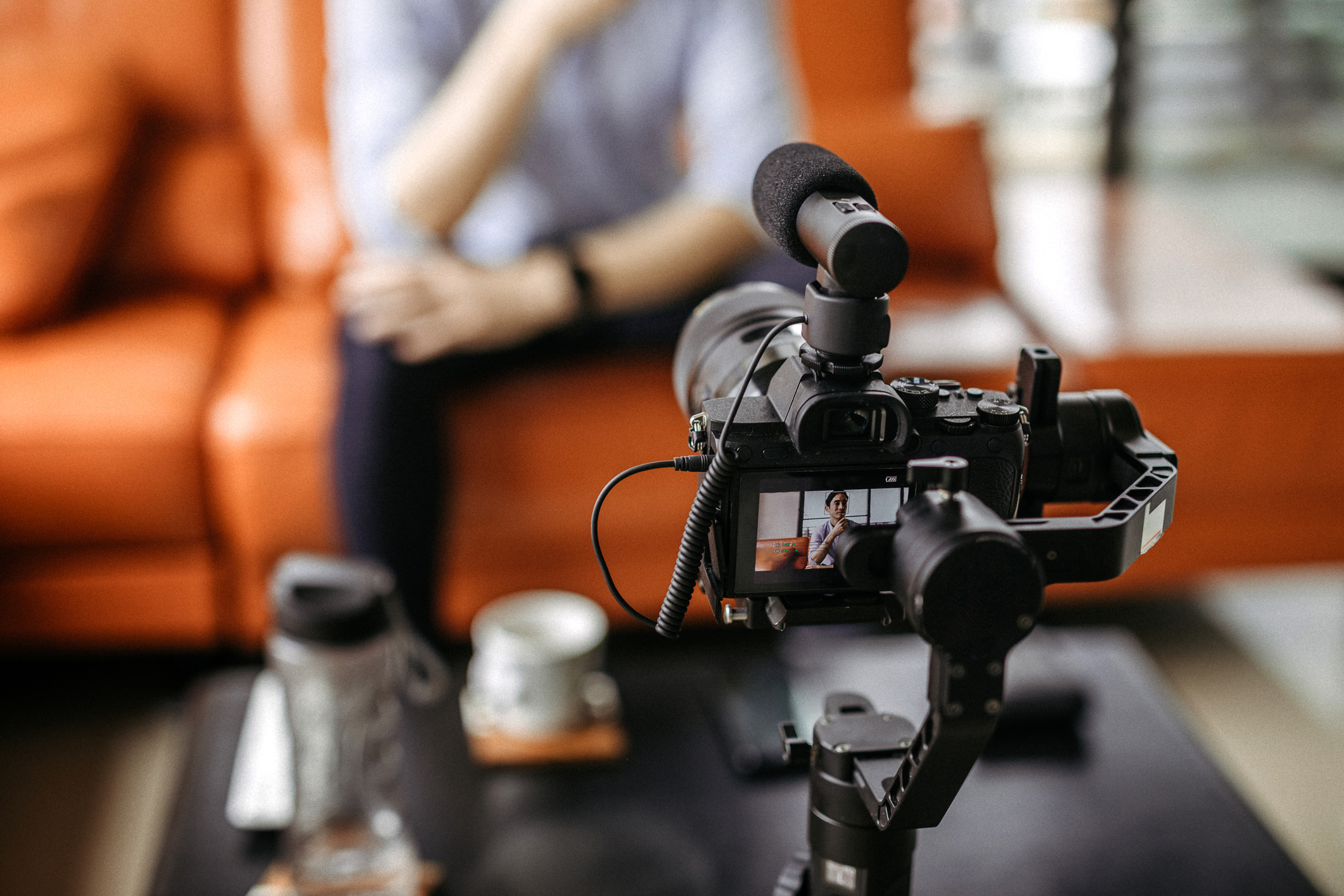The Relevance of Lawful Video Depositions in Modern Legal Solutions: What You Should Know
Legal video depositions have actually become crucial in today's lawful landscape. They supply a multidimensional sight of witness testimonies that standard records just can not match. By capturing both non-verbal and spoken communication, these depositions improve the overall understanding of a witness's credibility. Nonetheless, the performance of video depositions rests on different aspects, consisting of conformity with legal requirements and ideal practices (legal video depositions). Exploring these elements discloses their true value in modern lawful services
What Are Lawful Video Depositions?
Legal video clip depositions function as a crucial device in the lawsuits process. They involve taping witness testaments in a video clip format, capturing both non-verbal and verbal interaction. This method allows attorneys to document the demeanor, expressions, and responses of witnesses, providing a richer context for the testimony. Normally carried out in a regulated environment, these depositions are led by lawyers who ask concerns while a court press reporter records the discussion. The resulting video clip can be important for test preparation, as it allows attorneys to examine the reputation of witnesses and fine-tune their strategies. In addition, lawful video clip depositions can be made use of in numerous legal contexts, varying from civil disputes to criminal cases. The aesthetic and auditory elements of video clip depositions enhance the discussion of evidence, making it an important component in the modern-day legal landscape. Generally, they contribute significantly to the performance and efficiency of lawful procedures.

Benefits of Video Clip Depositions Over Traditional Techniques
Video depositions use many benefits contrasted to typical techniques of taking witness testimonies. One substantial advantage is the capability to capture both aesthetic and audio elements, offering a much more complete document of the witness's declarations. This dual style improves clarity and enables attorneys to reference particular subtleties throughout test preparation. Furthermore, video clip depositions promote remote engagement, making it easier for witnesses who might be unavailable for in-person looks because of geographical restrictions or health issues.Moreover, video depositions can accelerate the total deposition process, decreasing the moment and expenses associated with traveling and logistics. They also improve access, as recorded depositions can be quickly shared among legal teams and referenced at any moment. This benefit adds to far better case monitoring and preparation. On the whole, video depositions represent a modern, effective technique to collecting witness testaments, aligning with the developing requirements of the lawful profession.
The Role of Body Movement and Tone in Testimonies

In legal video clip depositions, body language and tone play important duties in communicating a witness's reliability and credibility. Nonverbal hints can offer understandings right into a witness's emotional state, affecting just how their testimony is regarded. Comprehending the impact of these elements is important for jurors and lawyers alike when assessing the dependability of a statement.
Nonverbal Interaction Insights
While verbal communication is commonly stressed in lawful testimonies, nonverbal cues such as body movement and tone play a necessary function in sharing reputation and emotion. Viewers of depositions may note that a witness's stance, gestures, and face expressions can significantly influence understandings of reliability. Consistent eye get in touch with might signify self-confidence, while avoiding stare might suggest deceit or pain. The tone of voice-- its quantity, pitch, and speed-- can impart feelings of genuineness or unpredictability. Attorneys have to be attuned to these nonverbal signals, as they frequently give crucial context that matches talked words. Comprehending these nuances can improve the performance of depositions and affect the outcome of lawful proceedings.
Emotional Tone Effect
The psychological tone communicated during legal statements significantly affects how a witness is regarded. Body language, singing inflections, and face expressions play vital functions in shaping the narrative of a testament. A witness displaying confidence via consistent eye contact and a calm tone can impart a feeling of dependability and interaction. Conversely, indicators of anxiousness, such as fidgeting or a shaky voice, might bring about apprehension regarding their account. The nuances of psychological expression can affect the analysis of realities, making it necessary for lawful experts to identify these hints. In video clip depositions, the visual and acoustic parts incorporate, stressing the value of psychological tone in conveying genuineness and truthfulness within the lawful process.
Credibility and Trustworthiness
A crucial consider developing integrity and dependability during statements lies in the witness's body movement and intonation. Observers usually depend on non-verbal hints-- such as eye get in touch with, posture, and motions-- to examine a witness's genuineness. A witness who maintains eye call and presents open body language might be regarded as even more reputable and straightforward than one that stays clear of eye call or shows up shut off. In addition, intonation plays an essential role; a constant, tranquil tone can strengthen the credibility of the testament, while variations in pitch or volume may increase questions. Eventually, the combination of body language and singing tone considerably affects just how a witness's declarations are gotten and translated in a lawful context.
Ideal Practices for Performing Video Depositions
Carrying out video depositions needs careful planning and implementation to ensure a clear and reliable discussion of testimony. It is crucial to select a quiet, well-lit location to lessen disturbances and safe ideal video high quality. The equipment should be evaluated in advance, including cams, microphones, and lights, to avoid technological concerns during the deposition.Next, celebrations involved should examine the layout and treatments beforehand, making certain that everyone recognizes their functions. The deponent needs to be informed on the process, including how to react clearly and concisely.Additionally, preserving an expert disposition throughout the session is crucial. This includes avoiding speaking over one another and confirming that all inquiries are directed properly. Ultimately, it is vital to tape the deposition in a layout that permits easy playback and evaluation, preserving the honesty of the testimony for future usage.
Lawful Considerations and Conformity Issues
How do legal factors to consider and compliance concerns impact the performance of video clip depositions? Lawful specialists must navigate a complicated landscape of guidelines, ensuring that video depositions adhere to jurisdictional policies and requirements. Compliance with regulations worrying personal privacy, permission, and taping approaches is vital. Obtaining specific consent this page from all parties included is essential to avoid lawful repercussions.Additionally, the admissibility of video evidence in court can pivot on conformity with step-by-step requirements. Ensuring that the tools used fulfills technical criteria is also important, as low quality can undermine the deposition's reliability.Moreover, attorneys should understand any type of particular state laws that regulate video clip depositions, as these can vary greatly. Failure to address these factors to consider can not just more helpful hints jeopardize the stability of the deposition yet additionally affect the general situation strategy, ultimately affecting the customer's lawful end results.
Just How Video Depositions Impact Court Perception
While video clip depositions can work as powerful devices check out this site in legal process, their impact on jury assumption is significant. The aesthetic and acoustic aspects of video clip recordings supply jurors with a much more complete understanding of witness demeanor, credibility, and emotional reactions. This multimedia technique can improve the jurors' capability to evaluate the integrity of testament compared to typical text-based transcripts.Moreover, video clip depositions enable jurors to observe body language, tone of voice, and face expressions, all of which can affect their analysis of the witness's declarations. The visibility of a witness on screen can humanize them, promoting empathy and connection, which may sway jurors' opinions. Alternatively, a witness that appears undependable or incredibly elusive on video may bring about adverse understandings that influence a court's choice. Ultimately, the dynamic nature of video depositions plays a vital duty fit how jurors analyze proof and reach their verdicts.
The Future of Video Clip Depositions in Legal Practice
As advancements in innovation remain to improve the legal landscape, the future of video depositions is poised for significant evolution. Technologies such as expert system, digital truth, and boosted video clip conferencing devices are anticipated to enhance the deposition procedure and boost access. Attorneys might make use of AI-driven analytics to assess witness reliability and instance strength much more effectively.Moreover, the combination of online truth can allow courts to experience immersive simulations of depositions, providing much deeper context and understanding. Furthermore, the trend toward remote depositions is most likely to persist, supplying better flexibility for clients and attorneys alike.As remote job comes to be progressively normalized, video depositions will likely become basic method, decreasing prices and time constraints related to conventional methods. Overall, these technological improvements promise to improve the efficiency, efficiency, and access of video depositions in lawful practice, inevitably transforming how attorneys prepare for test.
Frequently Asked Concerns
How Much Do Legal Video Depositions Usually Expense?

Can Video Clip Depositions Be Utilized in Any Kind of Situation?
Video depositions can be made use of in different kinds of situations, consisting of civil, criminal, and family legislation. Their flexibility permits attorneys to present witness statements efficiently, adapting to the details requirements of different legal situations.
What Tools Is Needed for a Video Clip Deposition?
To perform a video deposition, vital equipment includes a high-grade cam, microphone, lighting, and a reliable recording tool. Additionally, a computer system with editing and enhancing software may be necessary for post-production and formatting the last video clip.
For how long Does a Normal Video Clip Deposition Last?
A typical video clip deposition lasts in between 2 to four hours, depending on the intricacy of the instance and the variety of inquiries presented. Prolonged sessions may occur, however breaks are normally incorporated for individual convenience.

Are Video Depositions Admissible in Court?
Video depositions are usually permissible in court, provided they stick to lawful criteria and guidelines of proof. Their usage boosts quality and protects witness testament, aiding in the judicial process during trials and hearings. Legal video depositions have actually ended up being crucial in today's legal landscape. Furthermore, legal video clip depositions can be made use of in numerous legal contexts, ranging from civil conflicts to criminal instances. Additionally, video clip depositions assist in remote involvement, making it easier for witnesses that might be unavailable for in-person appearances due to geographical restrictions or wellness issues.Moreover, video clip depositions can speed up the general deposition process, minimizing the time and prices linked with traveling and logistics. Making certain that the equipment made use of satisfies technological requirements is additionally vital, as inadequate quality can weaken the deposition's reliability.Moreover, attorneys must be mindful of any type of particular state regulations that regulate video depositions, as these can differ greatly. Additionally, the fad toward remote depositions is most likely to persist, providing better versatility for attorneys and customers alike.As remote work becomes significantly stabilized, video depositions will likely come to be conventional method, decreasing costs and time constraints associated with traditional approaches.